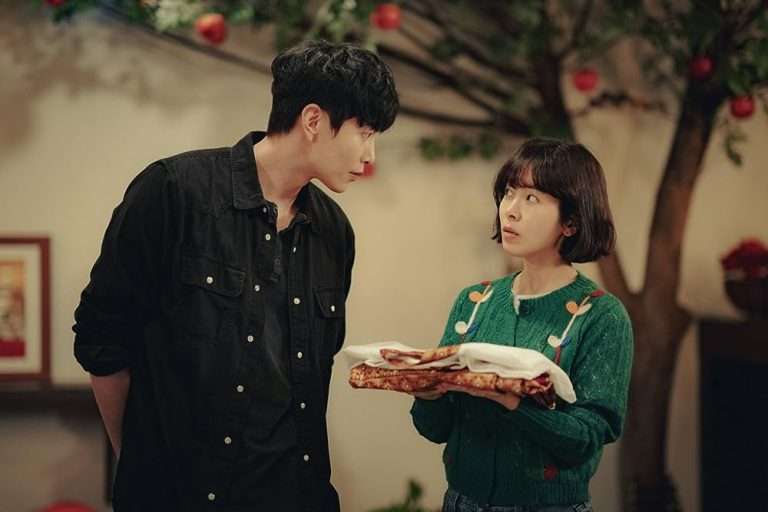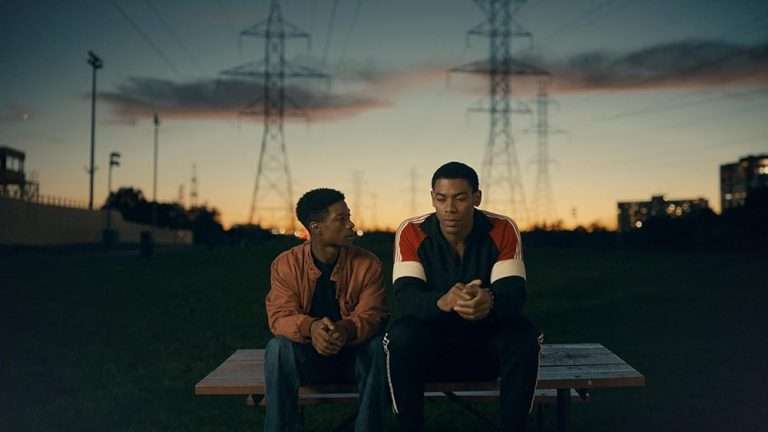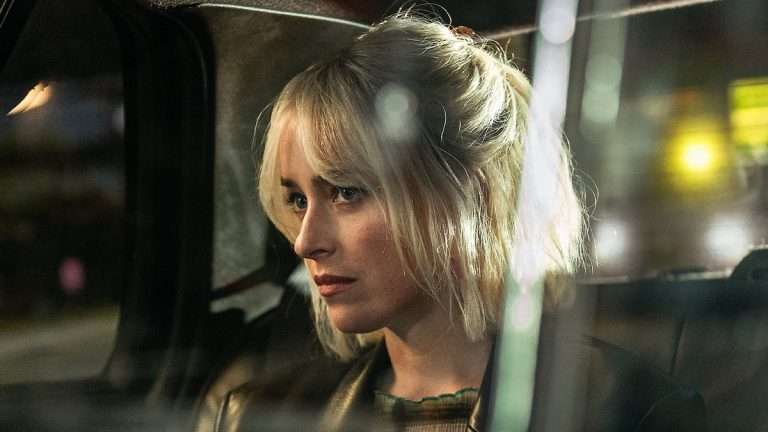Belgian filmmaker Claude Schmtiz’s The Other Laurens (L’autre Laurens, 2023) – screened at Directors’ Fortnight at Cannes – is a neo-noir thriller that tells a familiar tale of sardonic people and seedy locales with a deadpan sensibility and emotional remove which somehow engaged me. Written by Claude Schmitz and Kostia Testut, the film’s dark humor, fluid imagery, excellent musical score, and genteel facade elegantly hides the characters’ despair and alienation. Sometimes the events seem far removed from reality that it borders on fantasy. Yet, Claude Schmitz takes pleasure in complicating or dramatizing the narrative in such a way that kind of dazzles us.
The Other Laurens opens at the wastelands of the France-Spain border, where two men – allegedly the peripheral characters in the narrative – have a conversation. One of the men is spooked because he has recently seen a man who has supposedly died. The other man makes fun of him and assures him that ‘Francois is dead.’ In the background, there’s an aging gang boss frustrated by the mess of a deal he had made with an ‘American woman.’ Whether Francois is dead or not, there’s no peace for his surly twin brother, Gabriel (Olivier Rabourdin).
The middle-aged Gabriel works as a private investigator who specializes in adultery cases. He visits his senile, dying mother at the nursing home, who wants him to have his father’s treasured Rolex. But she mistakes Gabriel for Francois. Later in the night, as Gabriel is sorting out the pics of the extramarital case, he gets a visitor: the adolescent daughter of Francois, Jade (Louise Leroy). She wants him to investigate her father’s death. Though the police have ruled it as an accident, Jade has her suspicions. Gabriel wants nothing to do with his brother and has even avoided the cremation ceremony.
Gabriel wants to get rid of Jade, but she stays the night. The following day, Gabriel’s mother is dead. Besides, he hears the unexpected news that the nursing home charges haven’t been paid for five months. Francois usually takes care of such things. And we see why a little later. Gabriel decides to drop Jade at her home in Perpignan, a scenic place near the Mediterranean Coast and the Spanish border. They arrive at this lavish mansion. The American stepmother of Jade, Shelby (Kate Moran), mildly reprimands the girl for her disappearing act. Gabriel’s exact resemblance with Francois also flabbergasts her.
Jade gives Gabriel a tour of her father’s grotesquely wealthy house. Over a drink, Shelby shares her now-deceased husband’s financial troubles, which have left them nearly penniless. Gabriel also encounters Valery and his gang – shadier, thuggish men who worked for Francois and now for Shelby. Soon, another volatile man is thrown into the mix: Shelby’s African-American brother Scott – a former Marine and a helicopter pilot who did Grand Canyon tours and is now unemployed.
The suspicious death of Francois, obviously, is linked to their gathering. But Gabriel is largely nonchalant about it. His niece Jade takes him to the accident spot where Francois met his death by immolation. Back at the mansion, Gabriel wears Francois’ clothes, goes through his brother’s belongings, and picks up a chain with a pendant. However, the tenacious Jade does her sleuthing and finds the name of a place (La Jonquera) where her father had a meeting before the day of his death.
There’s a comic pair of middle-aged detectives in The Other Laurens. They are in search of a gypsy and coincidentally meet Jade and Gabriel, who are doing their own investigation. Subsequently, it looks like the detectives are following Gabriel’s activities. Jade encounters the caustic side of her uncle very soon. Gabriel gifts her the chain he found and says it was his gift to her mother. Then Gabriel tells her the heartbreaking story of how Francois manipulated and snatched the love of his life. His life collapsed on the same day as the twin towers came down.
Jade counters Gabriel’s story by saying maybe her mother had her own desires and chose Francois. Gabriel has firmly believed in the evil nature of his brother from childhood, and hence he ends up ranting about him, which also demeans his niece. Perhaps, Gabriel expected an acknowledgment of his suffering and the wrongs Francois had done to him. He wanted to earn the trust of his brother’s daughter and make her take his side.
Unfortunately, through Gabriel’s undying rage, we perceive the emptiness in his life. Like a true noir hero, he is cynical, insecure, and tarnished. Gabriel is so obsessed with losing his lover that he further chooses to inflict suffering upon himself by following cases of extramarital affairs. Naturally, Jade storms out of the place, whereas Gabriel accidentally stumbles upon a clue that might reveal the mystery behind his brother’s death.
I think in noir films, the deliberately byzantine plots don’t matter after a point. Who is going to double-cross who? Or who is the real villain in this tragedy? The Other Laurens sets up the questions, and answers are neatly provided after many perish due to their greed. However, it’s the impeccable compositions, use of dramatic irony, and smart handling of the noir elements that offer us a distinct movie experience. Florian Berutti’s cinematography and Thomas Turine’s musical score are the biggest strengths of The Other Laurens.
If you watched or read a few hardboiled stories, it’s easy to figure out the thriller aspects of the narrative. But the quirky and solid characterizations bestow many delicate layers upon the narrative. For a film driven mainly by the central characters’ internal crisis, Schmitz provides an intriguing arc for the supporting characters. Moreover, Schmitz and his co-writer Testut handle every moment with such thematic rigorousness. Overall, The Other Laurens (118 minutes) is a slow-burn neo-noir with inarguably graceful visuals, which also works as a compelling character study.






![Fantastic Beasts and Where to Find Them [2016] : A Very Well Told Moving Magical Tale](https://79468c92.delivery.rocketcdn.me/wp-content/uploads/2016/11/Fantastic-768x328.jpg)

